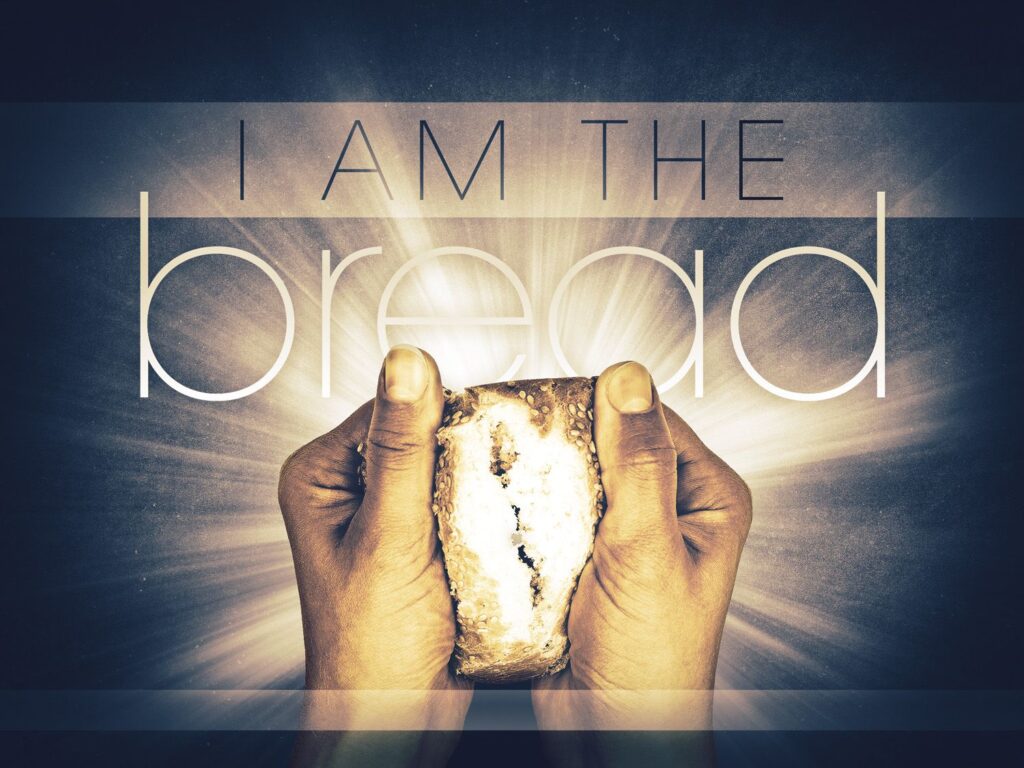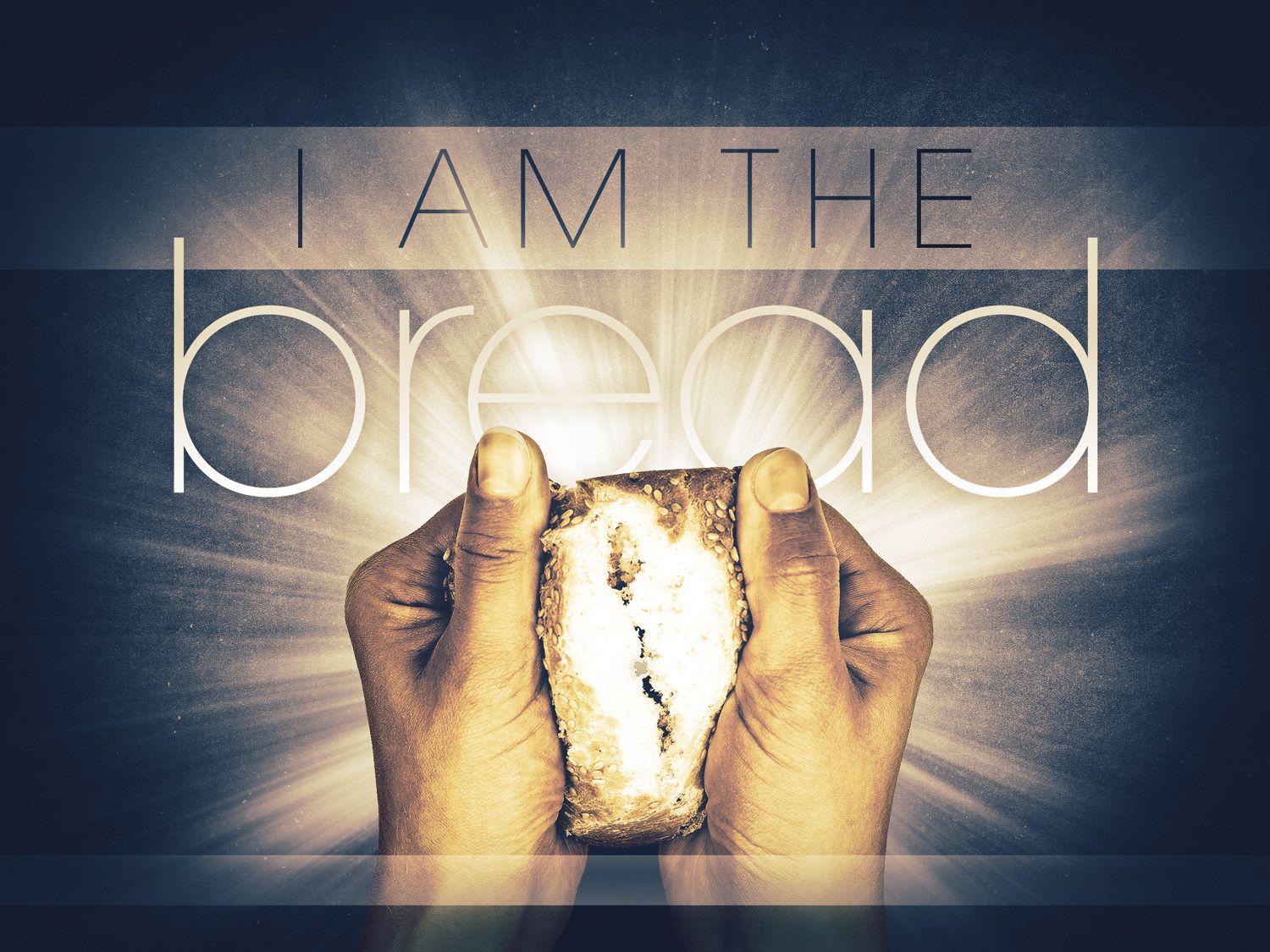
The Enduring Power of ‘Bread of Life’ Quotes: Exploring Faith, Sustenance, and Spiritual Nourishment
The phrase “bread of life” carries profound weight, resonating across centuries and cultures. It is a phrase steeped in religious significance, particularly within Christianity, where it’s a central metaphor. This article delves into the rich tapestry of “bread of life” quotes, exploring their origins, interpretations, and enduring relevance in contemporary society. We will examine the historical context of these powerful words, analyze their theological implications, and consider their practical applications in navigating the complexities of modern life. The term “bread of life” is more than just a saying; it is a spiritual cornerstone, offering solace, guidance, and a sense of connection to something greater than ourselves.
The Genesis of the Metaphor: Biblical Roots
The concept of the “bread of life” finds its most significant expression in the Gospel of John, specifically in chapter 6. Here, Jesus Christ declares, “I am the bread of life. Whoever comes to me will never be hungry, and whoever believes in me will never be thirsty.” (John 6:35, NIV). This declaration, made in the context of the miracle of the feeding of the five thousand, serves as a powerful assertion of Jesus’s divinity and his role as the ultimate source of spiritual sustenance. The miracle itself – multiplying loaves of bread to feed a multitude – provides a tangible illustration of this concept. Jesus, the “bread of life,” offers not just physical nourishment but also the promise of eternal life. This core tenet forms the foundation for countless “bread of life” quotes and interpretations throughout history.
Unpacking the Symbolism: What Does ‘Bread of Life’ Represent?
The symbolism of the “bread of life” is multifaceted. It represents:
- Spiritual Sustenance: Just as bread provides physical nourishment, the “bread of life” – Jesus Christ – offers spiritual nourishment. He provides the sustenance needed for the soul to thrive, offering guidance, forgiveness, and eternal life.
- Faith and Belief: Accepting Jesus as the “bread of life” requires faith. It is a recognition of his divinity and a commitment to following his teachings. Believing in him is likened to consuming the bread, thereby receiving its life-giving properties.
- Eternal Life: The ultimate promise associated with the “bread of life” is eternal life. This is not just a promise of survival after death but a life of fullness and connection with God.
- Community and Communion: The sharing of bread, particularly in the context of the Last Supper and the Eucharist, symbolizes community and communion. Partaking in the “bread of life” unites believers in a shared faith and experience.
Understanding these layers of meaning is crucial to appreciating the depth and resonance of “bread of life” quotes. They are not merely words but invitations to contemplate the core tenets of faith and spirituality.
Famous ‘Bread of Life’ Quotes and Their Contexts
Numerous quotes draw inspiration from the “bread of life” metaphor. Here are a few examples, along with their contexts:
- “I am the bread of life; whoever comes to me will never hunger, and whoever believes in me will never thirst.” (John 6:35, ESV): This is the foundational quote, directly from Jesus himself. It establishes the core message of spiritual nourishment and eternal life.
- “Man shall not live on bread alone, but on every word that comes from the mouth of God.” (Matthew 4:4, NIV): This quote, spoken by Jesus during his temptation in the wilderness, highlights the importance of spiritual nourishment over mere physical sustenance. It emphasizes the need for a deeper connection to God’s word.
- “Give us this day our daily bread.” (Matthew 6:11, NIV): Found in the Lord’s Prayer, this request emphasizes the dependence on God for daily provisions, both physical and spiritual.
These are just a few examples. The theme of the “bread of life” permeates Christian scripture and theology, inspiring countless sermons, hymns, and artistic expressions.
Beyond Religious Context: The Universal Appeal of Spiritual Nourishment
While rooted in religious tradition, the concept of the “bread of life” has a broader, more universal appeal. The desire for spiritual nourishment is a fundamental human need, regardless of religious affiliation. It speaks to the search for meaning, purpose, and connection in life. This is why “bread of life” quotes resonate with people from diverse backgrounds. It’s about finding something that sustains the soul, providing comfort, hope, and direction.
In a world often characterized by uncertainty and anxiety, the search for spiritual sustenance is more vital than ever. The “bread of life,” in its various interpretations, can offer a source of strength and resilience. Whether it is through faith, community, nature, or art, the pursuit of spiritual nourishment is a timeless human endeavor.
Applying ‘Bread of Life’ Principles in Everyday Life
How can the principles embodied in “bread of life” quotes be applied in everyday life? Here are some suggestions:
- Cultivate Faith: Whether through prayer, meditation, or studying scripture, make time for spiritual practices that nourish the soul.
- Seek Community: Connect with others who share your values and beliefs. Shared experiences and support can provide a sense of belonging and strength.
- Practice Gratitude: Acknowledge the good things in your life and express gratitude for them. This can foster a sense of contentment and appreciation.
- Serve Others: Helping others is a powerful way to find meaning and purpose. Acts of kindness and compassion can nourish the soul.
- Embrace Forgiveness: Let go of grudges and resentments. Forgiveness can free you from negative emotions and allow you to move forward.
By incorporating these practices into your daily routine, you can create a life that is spiritually fulfilling and resilient. The wisdom found in “bread of life” quotes serves as a guide, offering timeless principles for navigating the challenges and joys of life.
The Enduring Legacy of ‘Bread of Life’ Quotes
The legacy of “bread of life” quotes is one of enduring relevance. They continue to inspire and comfort individuals across generations and cultures. The metaphor of the “bread of life” remains a powerful reminder of the human need for spiritual nourishment and the importance of seeking meaning and purpose in life. They offer a source of hope, strength, and guidance, even in the face of adversity.
The phrase “bread of life” is not just about religion; it’s about the human experience. It’s about the search for something that sustains us, nourishes us, and gives us the strength to live a meaningful life. From the simple act of sharing a meal to the profound experience of spiritual connection, the principles embodied in “bread of life” quotes continue to guide and inspire. These quotes are a testament to the enduring power of faith, hope, and the unwavering human spirit.
Conclusion: Embracing the ‘Bread of Life’ in the Modern World
In conclusion, the “bread of life” quotes offer a profound and timeless message. They remind us of the importance of spiritual nourishment, faith, and community. While rooted in religious tradition, the underlying principles of seeking meaning, purpose, and connection resonate with people from all walks of life. Embracing the wisdom found in these quotes can provide a source of strength, resilience, and guidance in navigating the complexities of the modern world. The core message of the “bread of life” remains relevant: seek the spiritual nourishment that sustains your soul. The words of Jesus, “I am the bread of life,” continue to be a source of hope and inspiration for billions around the globe. Let the timeless wisdom of the “bread of life” guide you on your journey.
[See also: The Importance of Spiritual Practices; Finding Meaning in a Chaotic World; The Power of Faith in Difficult Times]


